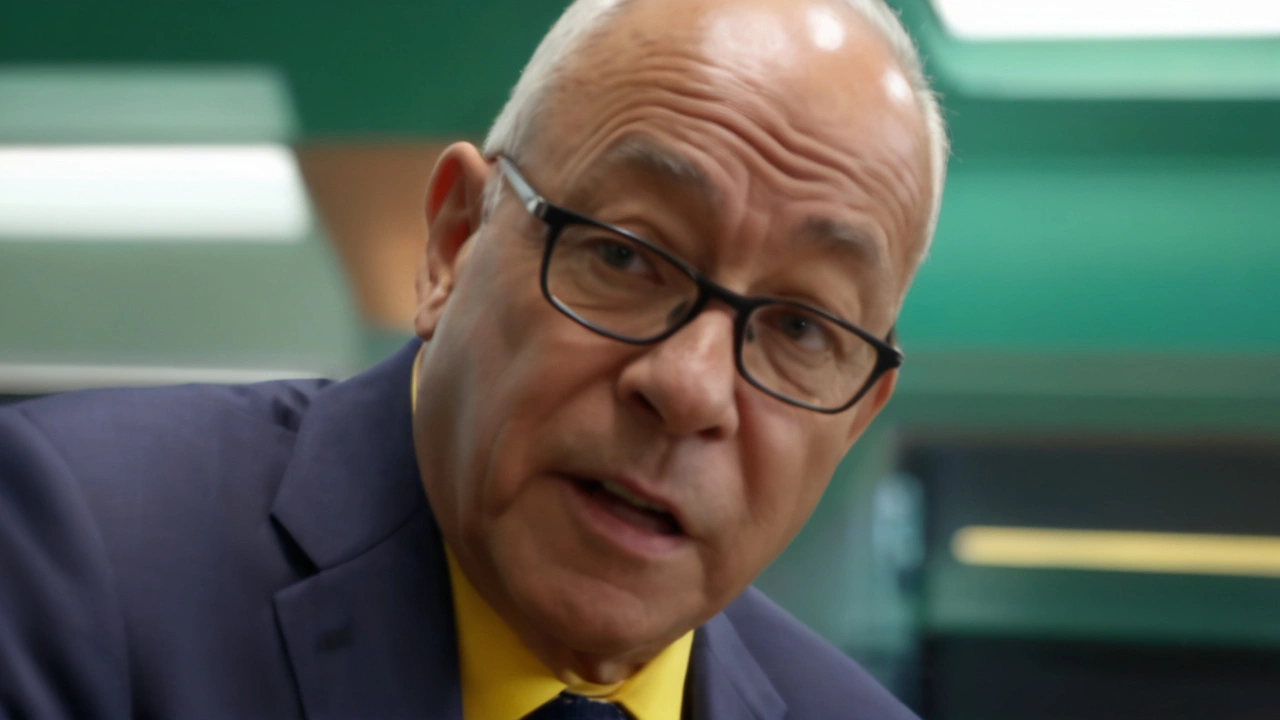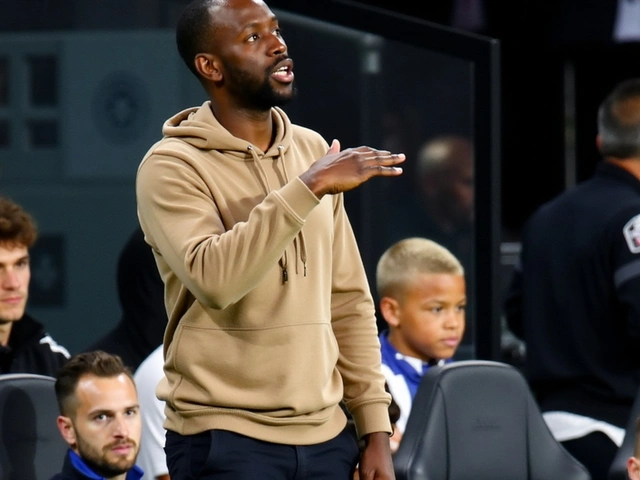First Graders' Outrage Over Mascot Sparks Persuasive Letter Campaign
It was an ordinary day at Greenwood Elementary, or so it seemed. Until a seemingly benign article in the school news created waves that rippled through the first-grade classrooms. The catalyst of this wave was none other than a beloved figure among the students—a furry, friendly, and fun mascot named Rocky. The students, who had just delved into the world of persuasive writing, were incensed by the contents of the article, which they felt gravely misrepresented their cherished companion. What followed was a brilliant display of passion and persuasive prowess, a testament to the expressive capabilities of these young minds.
The spark of the controversy was ignited when first-graders came across a school news article that they argued contained unfounded and hurtful lies about Rocky, their faithful mascot. The article suggested that Rocky, known school-wide for his lighthearted antics and upbeat presence, was nothing more than a mere distraction during critical school events. For the first graders, who idolized Rocky with an infectious zeal, this was utterly unacceptable. Their outrage was immediate, palpable, and fervently vocal.
The Skills of Persuasion Take Center Stage
Recently, the first-grade curriculum had prominently featured the art of persuasive writing. The young students learned about constructing arguments, presenting evidence, and writing compelling statements aimed to sway opinions. Little did their teachers know, the first real test of these newfound skills would emerge not from a classroom assignment but a compelling real-world scenario. Faced with what they deemed an unjust depiction of their beloved Rocky, the students eagerly seized the opportunity to utilize their newly acquired skills. Passion and persuasion merged, and a collective action was born. Their emotional response was profound, and their desire to rectify the situation was unstoppable. This was not just an academic exercise for them; it was a real cause that affected their daily school lives and happiness.
An Outpouring of Letters
The call to action led to a flood of letters, each student keen to voice their defense and protect Rocky’s reputation. With guidance from their teachers, the students set about articulating their thoughts and feelings through written words. In every letter, the depth of their connection to Rocky was evident. They detailed how Rocky brought joy, created fun memories, and played an essential role in fostering a sense of community within the school. Each letter was a heartfelt plea, constructed with the singular goal of changing the editor’s view and correcting what they saw as grievous misinformation.
The letters varied in tone and style, reflecting each child’s unique approach to persuasion. Some employed logical arguments, citing instances where Rocky’s presence had enhanced school events rather than distracted from them. Others used emotional appeals, painting vivid pictures of how much Rocky meant to the Greenwood Elementary family. There were anecdotes, heartwarming stories, and a plethora of 'Rocky rocks!' chants scribbled with enthusiasm only first graders could muster.
A Teachable Moment
While the episode was unforeseen, it provided an invaluable, albeit unexpected, teachable moment. The teachers observed with pride and astonishment as their students navigated the emotional landscape of the situation, grounding their feelings in structured, persuasive writing. They watched as the children transformed their frustration and indignation into articulate advocacy, demonstrating a depth of understanding and application of their lessons that extended far beyond the pages of their textbooks.
The students weren't just following instructions; they were imbibing the essence of persuasive writing. Their letters were peppered with reasons, examples, and conclusions that underlined their arguments fervently. It was a real-world application of learned skills, and most importantly, it was driven by authentic emotion and a genuine desire to instigate change.
Unexpected Consequences
This incident did not only illuminate the importance of responsible journalism and the power of words but also illustrated the unintended consequences of empowering young minds. Armed with the knowledge of persuasive writing, these first graders transformed from passive readers to active participants in shaping narratives and challenging perspectives. It reiterated the potent blend of education and real-life context, presenting a scenario where learning transcended traditional boundaries and became a tool for social intervention.
The editor of the school news, taken aback by the sheer volume and passion of the letters, acknowledged the children’s concerns. It prompted a reevaluation of the initial article, and an apology was extended towards the students for any distress caused. The revised piece, which incorporated the voices and viewpoints of the first graders, was published soon after. It was more than just a victory for Rocky; it was a victory for student voice, agency, and the efficacy of persuasive writing.
A Lasting Impact
The events at Greenwood Elementary have left an indelible mark on both students and staff. In the aftermath, there were discussions around the power of words, the importance of responsible reporting, and the impact one can have through passionate, well-constructed arguments. The episode served as a catalyst for further exploration into media literacy and the importance of student advocacy.
For the first graders, the journey didn't end with the publication of their letters. It was merely the beginning of their understanding of how they could influence change, express their viewpoints constructively, and stand up for what they believed in. The campaign for Rocky was a microcosm of larger societal interactions, preparing them for future participations in civic discourse. They now know that their voices matter and that through persuasive writing, they hold the power to influence opinions and instigate positive change.
Beneath the surface of this seemingly simple incident lies a wealth of lessons and affirmations—from the relevance of emotional engagement in education to the unforeseen, yet beneficial, miracles that arise when students apply their learning in real-world contexts. The first graders at Greenwood Elementary have shown us that passion, when coupled with knowledge, can indeed make a difference, no matter how young and small one might be.
In the end, it wasn't just about an article, or even about Rocky. It was about the power of young voices, the importance of education that resonates with real life, and how sometimes the smallest among us can teach the most significant lessons in humanity and advocacy.







20 Comments
Mascot mania distracts from real learning objectives.
Honestly, the kids turned a simple school mascot into a full‑blown crusade, and I love the drama of it all. Their letters read like mini manifestos, each one more impassioned than the last. It’s a glorious reminder that even the youngest can wield words like swords.
It’s delightful to see first‑graders applying persuasive techniques so earnestly. Their letters not only defend Rocky but also illustrate how early writing practice can build confidence. Encouraging them to voice concerns responsibly is a win for the whole school community.
The whole mascot uproar feels a bit overblown but shows kids can rally around a cause.
While the adults debate journalistic ethics, the children demonstrate a raw authenticity that often gets drowned out. Their fervor is both endearing and a subtle critique of adult complacency. One might wonder if the real lesson lies in listening to these tiny advocates.
Indeed, the young scribes have turned a simple editorial slip into a lesson on civic engagement! Their letters, replete with anecdotal evidence and heartfelt appeals, showcase a commendable grasp of rhetorical structure. It would behoove educators to harness this momentum for broader media‑literacy modules.
Ah, the classic case of over‑enthusiastic kids inflating a trivial mascot into a philosophical quandary. One might argue that the real issue is the adult tendency to underestimate youthful agency. Still, their passion is a refreshing antidote to our often‑jaded perspectives.
Let’s not forget that these letters also foster a sense of community; they unite students, teachers, and parents around a shared narrative. By encouraging respectful discourse, we’re building social capital that extends far beyond the mascot debate.
It is commendable how the curriculum’s focus on persuasive writing translated into tangible civic action. The children’s initiative exemplifies the ideal educational outcome: students applying classroom skills to real‑world contexts with enthusiasm and integrity.
Absolutely, the synergy between theoretical instruction and practical advocacy is inspiring. Such experiences can reshape how we view the purpose of early education, positioning students as active contributors rather than passive recipients.
What an uplifting story! 😊 Kids showing the power of their voices is just heart‑warming.
The phenomenological impact of first‑graders mobilizing around Rocky underscores the formative potential of early literacy initiatives. Their letters, while ostensibly simple, embody a sophisticated interplay of ethos, pathos, and logos. Each child marshals personal anecdotes as empirical evidence, thereby grounding abstract arguments in lived experience. Moreover, the collective effervescence generated by their campaign cultivates a communal identity that transcends individual classroom boundaries. By articulating grievances, the students practice reflective thinking, a cornerstone of metacognitive development. The editor’s subsequent apology further validates the efficacy of student‑led advocacy, reinforcing a feedback loop of accountability and responsiveness. From a pedagogical perspective, this episode epitomizes experiential learning, where theoretical constructs are operationalized in real‑time contexts. The children’s ability to sustain narrative coherence across multiple letters demonstrates emerging proficiency in discourse structuring. Their use of persuasive phrasing, such as “Rocky rocks!” illustrates rhetorical creativity aligned with developmental appropriateness. In addition, the episode offers a template for integrating media literacy curricula, prompting critical evaluation of source credibility. The school’s willingness to incorporate student feedback exemplifies democratic practice in micro‑governance. Consequently, the incident serves as a case study for educators seeking to nurture agency among young learners. Finally, the ripple effects-discussions on responsible journalism and the power of words-highlight the broader societal implications of nurturing articulate, engaged citizens from the earliest grades.
The whole mascot saga feels a bit over‑the‑top for such young kids.
While the excitement is understandable, it’s also an opportunity to guide them toward balanced expression and critical assessment of information.
Kids channeling their energy into writing is a win for the whole school; let’s keep nurturing that.
Indeed, fostering such authentic writing experiences can lay the groundwork for lifelong communication skills.
Short and sweet: let the kids write, learn, and lead.
Agreed-this kind of grassroots advocacy is precisely the civic engagement we ought to instill early.
Honestly, the editorial slip was a glaring lapse, but the kids’ response turned it into a teachable moment for everyone.
Spot on. The interplay between youth initiative and adult accountability creates a vibrant learning ecosystem.